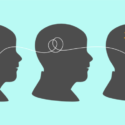
Leave Those Excuses Behind “”The reason that I didn’t get that report in on time was because my computer crashed, and I lost all of my supporting information…”
“I’m sorry for being late for the meeting; I got caught in traffic, and there were no alternate routes.”
“I wasn’t able to call you – your telephone number wasn’t in my Blackberry.”
Excuses. Excuses. Excuses. We can all find them.
Many times, the excuses we make put the responsibility for the action or inaction in someone else’s or something else’s hands. In the above examples, the computer crashed, the traffic was backed up, or the Blackberry didn’t have the information it needed. The power for the affordable was given to these inanimate objects.
Excuses give power to the wrong stuff. They weaken your integrity. They give the responsibility to someone or something else.
At West Point (US military academy), they have a tradition. For the first year they are there, you can only make four responses to an upperclassman. They are “Yes, sir,” “No, sir,” “I didn’t understand the question, sir” and “No excuse, sir.” They apparently believe that if you never let an excuse come out of your mouth for one full year, you can change your thinking.
Just think what your life would be if you did not make any excuses for one full year…
By eliminating excuses, you essentially take personal responsibility for yourself and everything that happens to you. You can shape your destiny through what you take responsibility for. You can raise your integrity to a higher level.
When something doesn’t go quite right, when you are late for that meeting because you got caught in traffic, the healthy response is to use it as a learning experience, rather than play the “blame game”. What could you have done differently to make sure you arrived at the meeting on time? Leave earlier? Check traffic reports? Take a different route? Avoiding excuses enables you to take responsibility, and learn from the situation.
No one is perfect. Mistakes will be made. Computers will crash. Traffic will hold you up. It is your response to these situations that can help you grow or hold you back. I believe that 10% of life is what happens to you, and 90% is your response.
If your response in these situations is to blame others, you can get stuck on a plateau where self improvement just plain doesn’t happen.
Blaming others puts the responsibility on them, rather than allowing you to take the steps that can help you improve your performance and your results.
Conversely, when you take responsibility, it opens the door to learning and enhancing your own growth. Taking responsibility for errors, mistakes or things that didn’t go quite right is a form of personal honesty.
You have got to be honest with yourself about situations in order to take responsibility for them.
“I really should have backed up my computer system.”
“I could have left for the meeting 20 minutes earlier…”
“I could have easily looked up the telephone number, or called information for the number.”
This kind of honesty can be very energizing and enabling. We are not advocating blaming yourself; we are advocating honest acknowledgment of the situation so that learning can happen.
When we learn, we have energy and enthusiasm. When we learn, we make progress. When we learn, we don’t repeat the same snafu. When we blame others, we close the door to learning. But when we see what could be an excuse, we can turn it into an opportunity.”













